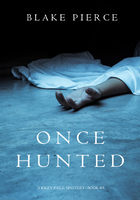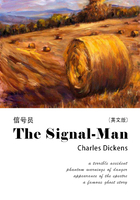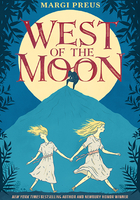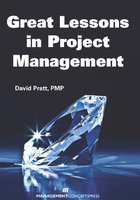"New always overcomes old," Judy said, sounding the words as if to convince not me, but herself. Judy, I called her; that was her name, and that was how I'd known her. Most of Dryco were familiared with her chosen pseudonym; as befit corporate etiquette, none save Mister O'Malley officially called her anything other than Madam. "New throttles old groundward, sighs and shudders, and tramps a remapped path. Nature's way, irregardless of old's needs." She drew in air as if each breath stung her throat; with pencil-thin fingers she smoothed her hair's gray cap. "John'll readjust or he won't, Iz. If he doesn't, you will."
"There's great unfairness in that," I said.
"Great unfairness in all," she said. "Regooding essentials that those in Security must readjust, if regooding is to effect. Cruelty no longer satisfies Dryco's intent. So says Seamus, at Leverett's request."
Through Judy's wallwide windows I watched pigeons and sparrows descending through clouds, swooping sillward, shelterbound. At touchdown they burst into blue bubbles; their leavings feathered the air.
"Since regooding underwayed John's gone holloweyed and withery," I said. "He'd have exed himself by now if we hadn't volunteered."
"He was awared of Security's needs at time of hire," Judy said. "Such deliberate positioning infers predisposing traits. Disregarding one's own life essentials to enable the undertaking of others. Prior to regooding, Security readied its members for their chosen hell, as was intended. Heaven doesn't become them, Iz. You knew that when your wedlock clamped."
"I never imagined this."
"Nor did I," she said. "Seamus reveals like patterns daily, and his training never so thoroughed as John's, or the others. If your husband breaks, he breaks. Accept that."
"He's failing, however hard he tries," I said. "It's so hurtful to watch."
"Blind yourself," she said. "I disapproved from moment primo, Iz. You deserved better. Where do they have him, this morning?"
"Clinicking," I said. "My turn, after. Such an awful place. Such awful people."
"Professionals all." She avoided my look. "So Leverett reminds me when I mention your complaints. I've long suspected those in the clinic are hired once they're proved too disturbed for Security. Still, this passage he's coursed for you demands full health."
"Mental health, too?"
"Nonadherent to this project," she said. "Absolute madness. Nada comes of breaking a mountain over a mouse for gravel."
"Mister O'Malley's unyielding?" I asked, relieved to assume that he still was.
"Leverett's silvertongued his ears shut."
Judy's surety in our project's purpose was considerably less than absolute. As her assistant, I was positioned prime to take the bait before any others; but Leverett had, after all, recommended that John and myself would be best suited for assignment needs. As vice-president overseeing New Projects, Leverett had conceived not only the policy of regooding; he'd as well originated the concept of our mission, bypassing Judy in mothering his idea, slipping it along to Mister O'Malley direct. Judy controlled Mister O'Malley as no others did; he'd bestowed full favor before she could call halt.
"The sole plus," Judy said, "Leverett's so occupied by these mechanics he hasn't time for his usual plots. He'll be dealt out unless this results as he pretends."
"You're hostiling so," I said. "You weren't so upset earlier—"
"You're needed here," she said. "But he's got you in the midst of this. You've unheeded all warnings—"
"My decision," I said. "We volunteered."
"At whose prompt?" she asked. "Your worser half s, or mine?"
"My husband and I are mutualed. Change essentials, Judy, but I don't wish to asunder, and he'll not last if we do."
"What fears you most, then?" she asked. "His desire to go, or yours to accompany?"
"Neither," I said. "Both."
"You've worked for me too long—"
"There's much unsaid," I told her, unable to say what it was. "We need togetherness. He's adrift unless I anchor," I said. "We've never tripped in simulcast." Her stare evidenced no sign that she would ever comprehend my love for John; so often, lately, I couldn't either. "I fear we'll return unchanged, with finis stamped through and through."
"If you return."
"Judy—"
"Forgive," she said. "Danger overwhelms all aspects of this. Pointless imbecilities."
"It does frighten at immediate level," I told her. "With John unable to act as might essential—"
"That's unconcerning me," Judy said. "I've seen you both act. His was learrned. Yours was born. If emergencies arise over there, you'll handle. I've seen you handle before."
"Years before," I said. "I'm no child any longer, Judy."
"Known," she said. "Don't mirage yourself, Iz. Our beloved enhance bad so well as good. Certify whose thoughts you're thinking before you act." Standing, she walked over to embrace me. "You're missed," she said. "Such a color you're turning, Iz." Her hand was dark against my cheek, as it had never been before; the six weeks treatment of Melaway they'd dosed me with had lightened my skin as if I'd been painted with milk. "Plainly a sister still, and here you leave two days hence. Problematic. That world's no place for our people, and it'll do you no good to show. Biggerstaff'll aware you of that—"
"Leverett's told me of that. They all have," I said. "I've inklings it's doing more than what's desired. Aches and pains rack me. They deafen to my complaints at the clinic."
"Tell Leverett. He raves so of the drug's worth, and I'd never heard tell of it. I suspect he'd like to dose me with it, to lessen his discomfort when I direct him and his peers," she said, laughing. "Time's here, Iz. Fond farewells await."
"Mister O'Malley?" She nodded. "What're my lines?"
"Mute yourself. He's nonresponsive, lately, to most," she said, stepping hallways; I flowed after her in her wake. "You smile, I'll transmit."
Abandoningjudy's office, we drifted through Dryco's new halls. A month before, as we underwayed our training, the Bronx headquarters finally opened, and all operations uptowned from Manhattan. The building's saffron spear stabbed heaven, scattering clouds; appeared altitudinous enough to be struck by rockets as yet unglared. Dryco Tower epidermed perfect; its innards yet transitioned. Topladen containments crowded passages, farragoed workstations cluttered all around; rugs awaited laying, charts wanted posting. Not all elevators elevated, yet all yawned at command to admit the unwary. Three days earlier, an executive marketeer in charge of Dryco's Indonesian sphere—suffering work-induced insomnia, entering her third foodless day—had misstepped, and expressed one hundred floors; incompany looselips gossiped that she dropped not by chance, but choice. Regooded Dryco gifted her husband with the cost of her urn.
"What's meant, he's nonresponsive?" I asked; wondered what prevented her gown's hem from sweeping the floor as she walked.
"He's introverting," she said. "He'll word me, or his sister, or the damned computer—"
"Alice?"
"None other. Even when he words us, he words us sole in Ambient talk."
"Serious?" When we were young we'd heard such talk, down in old Loisaida, where they hid; in secreting their gloriously misshapen husks from the world, Ambients secreted their speech as well, burying thought in the brambles of a clotted argot. Some believed their cant melodied pure; its garble headached me each time it hit my ear. None spoke it any longer, I'd thought; weren't all Ambients, like Loisaida, gone and lostaway for years? Certainly Ambients would never have stood to be regooded.
"And so I reply likewise. And Alice now words to no one but him. If I say something he chooses not to hear, he deafens; Leverett's plugged him twiceover. So no one listens, and sense goes unheard. Such complications madden, Iz. Fuckall. A better job I'd choose, if I druthered. But then Leverett would only see greater chance to grab. I'll see him six under first."
"Then he's not speaking to Leverett—?" I asked.
"Never did," she said. "Leverett speaks, he listens. That's what's downfalled."
Judy superiored Leverett, as she superiored all, though he'd been the sole Dryconian who'd been at his position since before her arrival. For years he'd worked his duties, unseen and unheard; then at once some short time before, he enlivened as if possessed, as if another had crept into his bed one night to supplant his being as he slept.
"Where'll my office be?" I asked, realizing I'd not been shown it during my initial visit. Judy didn't immediately respond; waited until we turned a corner, and faced a humming white wall.
"We'll decide after this project's put down."
She twisted her bracelet, twice to the left and once to the right. As the hum ceased the wall opened and Mister O'Malley's outer office revealed itself, free of furniture, executaries, or any corporate accoutrements. Judy proclaimed our arrival as we entered the space, shouting her name so that those listening might hear.
"Avalon," a man's voice responded, crying out from unseen speakers. "Behold me."
Mister O'Malley's doors parted, sans sound; peering sanctumways, we beheld. I'd not seen him in eighteen years; in the old building his entrances and exits were separate from all others. Here, twenty meters distant, he sat desked, staring south through the glass behind him, across his Bronx garden toward a dozen multistory trellises with covers but half-encircling. We crossed a lake-size maroon rug isled with stains of coffee. Dryco's owner was John's size squared; his sagging shoulders and wrinklepuckered eyes falsified his look as John's age quintupled. John had seven years advantage over his superior; or disadvantage, depending.
"Friends, Seamus?" asked a woman at Mister O'Malley's deskside. His sister, of whom I'd often heard, though again, never seen: as legended incompany, it passed that she'd been in some way treated, and wasn't quite right. She evidenced more years than me, though like her brother she might have held fewer; her biceps were larger than my thighs, and she could have tossed her sibling at command, if she wished. Drapes of auburn hair curtained her eyes, and her smile belied content.
"Friendsall, Enid," he told her, swiveling round to confront us; his voice-pitch was higher than his size would have led to expect. "Tell," he said, regarding Judy.
"Watched pots ready to boil, Seamus," Judy replied. "Our pigeons keen to fly. Pose last wishes, and so beglow the chosen."
"Then give ear to the wind and hear the hurricane. Regooding demands redemption," he said, his stare losing its focus in the gap between his eyes and ours. "Lovers love, journeyending."
"He wishes well. Hopes all settles, husbandwise," she retold to me. Extending his hand, he motioned for us to come forward; I noticed that his right forefinger lacked its first knuckle. A micromonitor broke his desktop's plain; I estimated that daylong he gazed into Alice's blue mirror, awaiting answers, perhaps recalling old secrets, slipping away from the day. His sister's head jerked as she craned her neck, as if her form were guided by strings. She spoke, keeping an expression seeming tacked to her face.
"Who are your friends, Seamus?" she asked, with fourteen-year-old's apprehension; with taloned fingernails she raked pink designs into her legs.
"Co-conspirators," he told her. "Night's fellow travelers."
"They go to your school?"
He nodded. "Our rails parallel at close range, commingling as one once horizoned."
"Word as preferred, Seamus," Judy said, her voice commanding obeisance. The company he kept was Dryco; as CEO, the company was hers as well: Judy had heretofore fulfilled all Mister O'Malley's wishes while furthering her own designs; they had always symbiosed well. "Bestill all fear. Grant your tongue to flap. The blind need one-eye sight."
"Sight betroubles those who viz too clear," he said. "Pluck loose lying eyes, and cast skull's dry sockets over green, pleasant land."
"Seamus?" his sister interrupted, rubbing spittle-foam from her grin's sharp points. "Lunchtime. Take us to lunch."
"Hushabye, Enid," Mister O'Malley said; turning to us, employed a softer voice. "Lookabout. This wicked world befuddles master and servant likeminded. Chaos fences tempers round. Millions cling to dead past longbegone, sucking dead hosts, spending like moths in unseen flame."
"Old hinders new, flying in fact's face," Judy translated. "Time to move on."
"Elvii misbeliefs dry bones' marrow," he continued, "rend purse and pocket. They convene their daft congress, heedless of our own sessions, wetdreaming absolution from one incapable. Deadeyed to light, they opt for dark." He shook his head. "Lemmings racing cliffways, and here we stand stillfooted, marveling at the cold gray waste."
"E's fools breathe our needed air," Judy said. "Distract multitudes with tales of vague return. Sense demands we settle." She annotated with a whisper. "My sense says we'll not."
"All Elvii bewail their lot," he said. "Grow bony by feasting on fancy. Digging oases of pain in deserts of comfort." Mister O'Malley blinked, gazing into his desktop; stared more intently, as if into a pool whose mirror, unexpectedly, revealed another's reflection, one not immediately recognizable. "Such jabbernowling frets and hinders. Our good works go out sans gratitude and all suffer. Therefore, if the converted won't reconvert, their master, or one so guised, should undertake to play our tune. A touch of truthache essentials, lest sharper drama too soon becloak our stage, and weary our watchers of our play."
"Options sole," said Judy, "our neck or theirs."
"Friends," his sister said, interrupting once more; a thread of spittle hung from her mouth. "Seamus, friends?"
"Friends. Yes, Enid," he sighed. "So if in seeking that other world's obscure object you find him, then the Elvii's savior can be awarded bespoken, and shall pronounce as we wish, calming all with his words. His lightning rod shall drain heaven's wrath, leaving sunlight clarified clear. Our new dawn's fingers shall stroke with lover's touch until they fade to black. The Elvii deserve their desired, as the bright-minded deserve us." He eyeshut, as if to sleep, and dreamaway; reawakening, he spoke of what he'd dreamed. "In the gone world, similar once was tried, to sad result."
"Dryden attempted the like sans E figure," Judy said, and again, added commentary. "This'll result sadder, sure."
"Friends, Seamus." His sister thumbedged smiling, circular faces in the dust atop Mister O'Malley's desk. Mentally challenged, mayhap; she knew her logo so well as any. "Happy."
"Yes, Enid. Happy." His sister slapped her knees with her hands as if joyful with her noise, staining her palms crimson as they touched her newmade scars. "Then fly break-necked," he told me, his eyes at last seeking mine, "over there and back again. Guise yourself in stealth's cloak, and cross. Seek. Find. Return. Afterward, lucked, their new shall regood what's left of our old."
"If successed," Judy transposed, "we be messiasized."
With his hand Mister O'Malley traced his face's knobs and valleys, as if sanding his fingertips upon his stubble, to make his grasp more delicate, therefore undetectable; as if assuring himself that he was still there. Examining me twiceover before reaverting his eyes, he momentarily incarnated my husband's face upon his own, expressing sans word that he'd closer neared what each—all—sought.
"All good," he concluded. "Till time's lovely end."
Windowways, beads of blue fire flared; dropped from an ever-restrung strand. "Sooner," I heard Judy mutter, as we backed away from his desk.
* * *
Between elevator and exit I vizzed the thousand faces of Dryco; its glories manifested throughout the new red lobby, upon its stone floor, beneath its vaults and arches and groins. So chambered, I knew entrapment's feel: jailed within a whale's heart, or in the bloodied womb of Godness. Blasphemy, mayhap, to so meld spiritual metaphor with secular truth; but mine is a faithful blasphemy. Mother Church thralled John and me: we took the Visions of Joanna, Revised, as truthed; when desperate, found—could find no longer—comfort in Her grace; believed as any believed in God and Godness, the Two in One, who preserve Their world that, when Day comes, They might destroy all and enact a cosmic regooding.
Their competition was present in guise, if not spirit. E's gilded statue revolved atop a pedestal, amid all else which Dryco had gifted unto its world; his icon was shipped from the Dryden estate after Mister O'Malley's redevelopment of the property and, prepping for what was to come, reinstalled here. E's dead eyes stared blind upon his potential worshipers; his vast sculpted belly held a world's weight. His congregants outnumbered, and outshouted, those who followed Godness; my fellow heathen and I knew no escape from the King.
Elvii were as locusts: harmless, even funful, when singled, and suffocating, massed. They swarmed into their services and into the mass gatherings they termed ElCons, praying for, talking about, listening to and posing as the King for days on end, segregating themselves from the world to celebrate their increasing strength; then, recharged, they'd appear amid the unafflicted populace, proselytizing sans cease, berating their co-workers, distributing illiterate tracts and zines, deadheading computer lines, vandalizing walls and screens with their deconstruction of the word. Dialoguing with Elvii became, inevitably, monologuing: they understood no referents but E, and all else existed but to be measured against his greatness and found lacking. That they believed didn't satisfy; to their eyes all should want him as desperately, and to the exclusion of everything else.
Millions wanted the King now, wanted without cease, fullfaithed and overt; but which King? The C of E was one church become many; its mitosis ensued at conception, and seemed primed to split, divide and resplit unto perpetuity. Each new denomination contained from its birth fresh infidels, keen to look askance and thereafter contrary: take, as exampled, the Prearmyites. Within their ranks were souls believing the rhythms of E's songs to have been irredeemably tainted, once accompanied by drums; others certained that in recording's act an impenetrable firewall came down between singer and hearer; the sect's fundamentals affirmed sans admittance and argument that between song head-heard and throatsung, the shadow showed: that not even the King himself comprehended his deepest glories.
And the Prearmyite denomination was but one: amongst the Elvii were the Hosts of Memphis, the Shaken, Rattled and Rolled, the River Jordanaires; the Gracelandians, the Vegassenes, the Gladyseans; the C of E Now or Never, the Redeemed Believers in Our Master's Voice, the Church of the True Assumption of His Burning Love, and a hundred dozen more. Each schismatrix knew their King true, and saw their road as sole and only; their only given was that, for whatever reason, and—they supposed—at no one's command, the King would return.
There were no longer overt Elvii in the tenth and ultimate circle of Dryco as there had been in the Drydens' time; Judy, for one, I suspect, would have preferred that all Elvii be neutralized in oldstyle manner. But regooding forbade elimination, necessitated appeasement. By suggestion of Leverett, by command of Mister O'Malley, against Judy's every wish, it was Dryco's given that if E returned, John and I would bring him, in the guise of his other world's counterpart, that he might be tossed into his crowd and so docile them, if not in rejoining quotidian life, at least into departing fully from it. That was the theory as we'd thus far heard it. His exact material form in that other world immaterialled: his new overseers would reengrave the image stolen into desired shape, pleasing his followers in whatever way they wished; but pleasing Dryco, first of all.
"Denude," I heard my doctor's voice demand; I did. "Table yourself."
Her image fluttered as a windblown flag, revealing only multihue blur free of formal line. Even when my medicis onscreened true it remained uncertifiable that the women seen were the women speaking; Dryco invariably hired posers if their look better suited perceived prejudice.
"Arms over and above," my nurse's monitor voiced. "Spread."
As per the employee plan, females were treated by females in Dryco's health clinics, dissecting and probing and poking with neither less sympathy, nor greater kindness, than would have males. Their names were nonessentialled info; I never knew what to call them that might lull forth an unwitting—any—response. Once unshelled, I reclined upon cold metal, wincing at its heel-to-head burn, suspecting that when I departed the clinic this time—as I suspected, every time—my toes would be tagged, my eyelids sewn shut and my sheet wrapped tight around me.
"Inhale."
Their machines's songs ascended Eastern scales, warming into vibrant modality; once revved, they wailed as banshees. A host of utensils emerged from table top, prepping to examine and prod. Metal baffles lifted, encompassing me, that during treatment I could not meet their surrounding stare. Steel bands unribboned, cuffing my wrists; clamps took hold of my ankles and extended upward, angling my legs forty degrees upward. "Physical underway," my doctor noted her record, and then spoke to me. "Relax."
Our docs never neared living patients; needless exposure to such vectors of transmission inevitabled otherwise-avoidable infection.
"Circulatories, normal," my nurse said, descending the list. "Gene stimulations, uninterrupted. Transmissions, steady. Respiration, acceptable. Lymphonic conversion, responsive. T-cell progressions, negative. Neural response, appropriate. Cell regrowth, positive—"
"Perspiration, hypertropic," my doctor noted. "Adrenaline output elevating. Blood pressure rising. Relax, Bonney."
Both nurse and doctor seemed to speak from Mars. Ceiling reflections of machine-light shimmered as if watercast.
"Rectal readings," my doctor said, "suitabled. Throttle up."
"Boosters ready." A dozen needles speared me, piercing my arms, my legs, my bottom, neck and spine. Immobilized as I was, all I could do was scream.
"Administering vaccinations and reboosts as per program: measles A and B, hepatitis varietals, gamma-g, typhoid, Sabin, DS, DPT, malaria, HIV one through six, coryza series, TB, influenza, smallpox, RecomStrain, yellow fever, Carcinomile, RNA screens, pneumonics. Contraindications noted, no unpredicted danger foreseen."
"Catscans?" asked my nurse.
"Demonstrate patient's continued viability. Prepare for pelvic insertion."
My legs, assisted, reached greater altitude as their separation increased, and then the table intruded itself into me; its rod felt to have been chilled for weeks. My fingers grasped at air as I felt myself split. A year-long minute passed before either nurse or doctor spoke.
"Examination proceeding," said the nurse. I saw a yellow light blinking.
"Celibate state not contractually demanded," said my doctor, after perfunctory observations. "Cycles abnormalling?"
"No."
"Louder, please. Detail reasons."
"Husband," I said. "His mood lacks. I'm hurting—"
"Pain responses within boundaries. Discharge evident. Ovulation patterns suitable. Dermal reactions—"
"Relax," the table's loudspeaker voiced, sounding with a man's ingratiating rumble.
"Pacify yourself to lessen discomfort. Silence, please. Sedative application proceeding," said my nurse.
"Don't dope me. Don't—" But their additives already coursed through the needles; momentslong, my head lightened, and as perception altered I watched the overheads waving as if they'd taken on a semblance of life. Shortly, the pain was almost describable, if not bearable.
"Melanin production abeying as predicted in British studies of Melaway," my doctor noted. "Caucasian similitude attainable on schedule as desired. Continue avoiding noonday sunlight."
"This drug," I tried to say, "Affecting more than—"
"Corrective agent," she reworded. "Drugs heal. Corrective agents correct."
"Term it as suited," I said. "All's incorrective. Headaches, daily. Nausea unavoidable, every morn. Vomiting and cramps. I jointache as if bonebroken. Melaway's causing all, I know—"
"Expected. Silence, please. Health dissemination proceeding."
"Relax," the table said.
"Expected?" I replayed, hearing my words slur as I enabled them to crawl over my lips. "Every effect?"
"Not unexpected," my doctor said. "Further questions?"
"AO. At treatment termination I'll darken anew?"
"As detailed earlier," she said. "Original skin pigmentation redevelops within three weeks following cessation of treatment with Melaway. Exhale."
"Certify harmlessness," I said. "These effects—"
"Total harmlessness uncertifiable with any experimental corrective agents. Silence, please. Further elaboration inessentialled within program guidlines and can only result in patiental intensified confusion induction. Inhale."
Their thing slid deeper into me. "Get it out," I shouted, not wanting to cry.
"Tear salinity, acceptable," my doctor said. "Calm yourself, please, preparatory to withdrawal. Greater pain may result otherwise."
"Ready automatic release," said my nurse.
"Ready," said the table.
My wrists, fresh-accessoried with blue-black bracelets, slipped loose of their bonds. My intruder slipped out as I rose. Glimpsing a red jewel newly adorning its chromed tip, I felt my throat bile over. As I dragged myself off the table I nearly collapsed, feeling physical agony as intense as my emotional pain, and would have tumbled groundward had I not caught myself. The room spun round me, as if to launch itself skyward with I, its fuse.
"Smile," my nurse's voice said. "Your day awaits."
"Madam still thinks mass movements undocilable, eh?" Leverett said; aiming a finger toward his temple he twirled it, and smiled. "Unreason's sleep breeds madness, poor thing. We'll calm the Elvii too, whatever she imagines. Regooding works in all areas of human endeavor, depending upon approach."
Leverett, sixty-six, appeared fifty; he'd overseen Dryco's New Projects division since soon after century's turn. His suit looked as if he'd bought it the summer after graduation, and had slept in it every night since, though all knew he had them made to so impress; his hair was tousled artfully by one of many assistants who were appointed to come by and tousle it. Leverett's suit and hair were of like hue, though I couldn't immediately distinguish which had been dyed to match.
"Marvelous weather," he said. Eyeing windowways I watched a waterspout kilometers distant take root in the harbor's gray field. Leverett's office was splendidly plain: its bleakness was enhanced by one desk, mismatched chairs, a stack of printout, a Harvard banner and portraits of his position's two predecessors. "Hairs the chest."
"Undesirable," said John, leaning forward in his chair; as he shifted closer to Leverett's desk a flock of paper clips flew from their nest and rested on his shirtfront.
"How'd they magnetize you?" Leverett asked as John plucked the clips loose. My husband, as did all in Security, had strips of Krylar dermally implanted across his torso, that missiles might be deflected without recoursing to bulky outerwear; Security once did all that was possible to stress-lessen its workers in body and mind.
"Passing side effect of morning's tests," John answered, "I'm told." I'd met my husband after clinicking; John's session had been no more enjoyable than mine. "Departure date solid yet?"
"Wednesday next. Expectations must be mounting sky-high, considering what lies ahead," Leverett said, smiling so unceasingly, if with more subtly evinced awareness, as Mister O'Malley's sister. "Travelready?"
"We're hep, dad," I said, demonstrating the command I'd gained in properly wording those whom we might encounter. "Keen to lay rubber."
Comprehending my rewordings without overmuch confusion, Leverett allowed his smile to broaden until his skull seemed set to drop from his jaw. "AO, Isabel. Clear as air," he said. "Plaintext English suffices here, needless to say. What necessaries remain, at present? So many tracks, my train gets lost sometimes."
"Evening meet with Biggerstaff set for this eve," I said. "Course finals, Friday."
"Fine, fine. Your teachers prepped to apple?" We nodded. "Couldn't have selected better than you two if we'd tried." Fisting one hand, he struck his other, rejoicing at the sound of skin hurting skin. "Oh, Godness. Superfluous to say where I'd go, if I wasn't essentialled here—"
"Where?" John asked, employing Jakeish methods: inquiring of the obvious where no inquiry was expected, that unpracticed reactions might be studied, and appraised, and filed into memory for possible later use. "Where would you go?"
"There. Over there," said Leverett, his smile unchanging. His simplest reaction impressed me as long-practiced and heartknown, if not heartfelt. I didn't distrust Leverett more or less than any for whom I worked, supposed co-believer of ours in God and Godness though he might be; John, of suspicious mind, forever reattuned to those around him, and so kept greater distance. Once I termed Leverett avuncular; John said he'd never allow him near children, whos-ever they were. "It's a dream mission, truly. Over there you'll see how we all could have gone."
"I've concerns," said John.
"Allow me to mentor," he said, his eyes dog-eager and as dark. "It's what I'm made for. No policy better than honesty. Detail deepest thoughts. What's felt?" I silenced, lipstill; by then numberless tests had come so unexpectedly, so often, that I considered at length the simplest inquiries. "Relax," he said. "No answer wrong here. What troubles?"
"The polarization," John said. "Madam's disbelief unyields, yet with each meet your spiel intenses till we seem stopping short of reinventing wheels. The difference troubles overmuch."
"Mister O'Malley approves full," said Leverett, reclining in his unpadded chair. "All have opinions, his matter most." He gestured toward the portrait of his male predecessor, a middleage man of unsettling look whose painted stare blistered whomever his eyes sighted. "Timeover there've been questions and qualms incompany over method and purpose. Mister Leibson always contraried if the betterment of the company demanded. Timeover he was proven right."
"He was exed, nonetheless," John said. "Might history repeat?"
"It was an interfamilial matter," said Leverett. "Mrs. Dryden. Mindaddled. You know the tales. A tragedy, nonetheless. My blessing, that I was mentored by one so great. Mister Liebson enabled Dryco to be what it became."
Leverett's other predecessor was female, and named Joanna, or so worded the frame's inscription. Her face interested me more than Liebson's; her fear, unlike his, directed not out but in. Hers was a twentieth-century face, haloed with blond hair, staring with sleepless look, countenancing lightbright with unaccepted pain. She'd suicided as well, or so Leverett told; yet another mindaddled, he said.
"Then what so necessaries Dryco's regooding?" John asked.
"Changing circumstance," Leverett said, "as told. Regooding's a simple process. Minor readjustments, a clock's winding, new soles on the shoes. Some improve at will," he said, looking at me. "Elvii, sadly, respond to no prompts other than their own. As Mister O'Malley has said, sense goes unheard. Ergo, we'll calm them as they wish, since nothing else suffices."
"A corresponding E's existence is unassured," John said.
"Statistics evidence an eighty per chance." said Leverett. "Numbers' comfort satisfies."
"Statistics lie, told to lie," John said. His damp forehead beaded, and he tempered so, that I feared he'd forgotten to medicate. I took his hand, hoping to calm; he slipped free of my grip. "If the goal's nonexistent, all's pointless."
"Nonexistent? Unknown unless tried," said Leverett. "We'll tack a different course in event of unsuccess, but one attempt's demanded. Ends justify means, however the turnout. What concerns so, as the date nears and all plans ready to engage?"
"Promotion's assured?" John asked, pointing towards me, seeming unmindful of his own proposed raise. Leverett sat back in his chair; examined us—still smiling—as if he were our father, and was disappointed we'd found it necessary to ask about something promised, however often he'd reneged in the past.
"Doubled salaries in either circumstance," he said. "If all successes, unimaginable fulfillment is certified as contracted. Our world and all its wonders will lay platterways before you."
John shrugged, quieted. A different concern beset my mind. "I discussed particulars of medical problems with Madam—"
"She awared me," Leverett said, his smile narrowing. He reached into his desk, taking from a secured compartment two pill-filled tubes. "Had to roundabout a bit on these. All doors open when one knows the knock," he said, laughing, passing me one of the containers. "This will intensify Melaway's recomplexioning process. A like formula, similar to what you have. Take one each night till departure, along with your other dose, neither more nor less." He handed the second tube to John. "For you."
"Added dope?" he asked, pocketing it.
"I wouldn't call it that," Leverett said. "Should assist your trials. Again, take along with what's prescribed. There, now. Further questions?"
"What if we find the other world's E," I asked, "and he's disinclined to return?"
"Would anyone deny proffered godhead?" Leverett asked, his facade agleam with a child's astonishment. "Choose a limboed life over one spent in something approximating heaven? If he's there, and if he's found, relate your truth predeparture, if necessaried. Cliffside him, and show him his awaiting cities. Hold any carrots you have close to his nose." His smile engorged, revealing rows of whitened teeth. "If he still doubts," Leverett said, eyeing my husband as he rattled his bottle of pills, "well, you'll convince. My trust implicits."
"General Biggerstaff—"
"Luther, please. Formalities never suited," he said. "Listen as I tell. Point of transferral was here." He tapped Russia's gold meadowlands with coppery fingers. "Point of emergence, here." Adjusting his touch as if to better please a lover, he stroked Pennsylvania's rosy mountains. "You've been awared of the displacement effects of high velocity, surely. Shouldn't expect similar, moving at slower pace."
"This globe," John asked, vizzing the world before him. "Dated when?"
"1939," said Luther. "Summer. It's of our world, of course. Eye Germany, there. Austria and Czechoslovakia already annexed. Poland not yet overrun, and the future just over the edge."
Imprinted upon the orb were splotches of pink and green and yellow, lingering evidence of lands long lost: Tibet and Madagascar, Baluchistan and Siam; Chosen, Tannu Touva, the Belgian Congo and Nyasaland. What were Nyasas? Where had they gone? Were they sent away by others, or had they packed themselves off en masse, that they alone might perpetrate the erasure of their memory? Standing in his living room, staring at his globe, I studied our world's face as it once showed itself. Did the resemblance to theirs still hold true, or had, unbeknownst to us or mayhap even to them, a third world emerged from the mix?
"Enumerate their world's dissimilar manifests, "John said.
"Innumerable," said Luther.
"What were your impressions?" I asked.
"Tragic beauty. Grateful loss. All descriptives are contradictory. My opinions are meaningless, after all. Rewrite the book according to your wishes as you read."
The Biggerstaffs were forty-seventh-floored in a new Dryco building, on One-Eighty, near the park. I remembered going as a child to the old zoo, seeing animals so lost as Nyasas or Baluchistanis. Those living in the surrounding neighborhood, prior to its levelling, hadn't yet killed them all. I trepidated that evening upon entering their apartment; his wife, we were told, was from that other world, and no one briefed us as to how she would show. Luther greeted us singly, appearing to hold fewer years than in truth he actually held. After a half hour passed in his wife's absence, I relaxed enough to almost forget she was there.
"This'll show at borderbreak?" John asked, studying a framed photo ahang on a wall that pictured a sharp white spear and marbled ball.
"Your guess, my guess," Luther said. "We tore ours down. They have their own style."
As did Luther; the photo was contemporaneous with the decor. Throughout the apartment were century-old antiques: Kodachromed postcards of erased American streets, stony, gargoyled towers, and restaurants guised in animal shape; bloodshaded tumblers, lamps with smooth chrome curves, skyscraper-sleek bottles, stepsided clocks faced with angular, unreadable numbers; tins logoed with non-Dryco insignia, the silver moons of hubcaps affixed to peach-pale walls. Atop an oversized wooden radio was an insecticide sprayer, its shape reminiscent of streamlined male genitalia, recast in dented tin; the painted letters FLIT underlay the shaft's rust.
"Your museumpieces astonish," I said, eyeing it all. "Such a collection."
"It's a bloodsport like any other. The past pleases overmuch to be entirely healthy," Luther said. "My wife needs dinner. Excuse me."
Luther trod catfooted, glancing through the doors he passed, moving as John moved: those tarred with the Army or Security brush forever revealed their conditioning, however they tried to hide it, stepping as if each movement might bring blast, hooding their eyes against what didn't have to be seen.
"You crossed unaware of what lay before you," John said. "What resulted?"
"Expect your own shocks," said Luther, switching on kitchenlight; pausing before he entered the room. "They've prepped you so well as possible for this, I gather?"
"We're doubleprepped," I said. "Classed in linguistics, sociobservation, popular artifacts, cultural anticipation, historical processes—"
He masked his face as he spoke, revealing nothing. "They're bleaching you? That's wise. They've absolute apartheid there, and nothing inkled that it was about to change—"
"Forewarned, forearmed," I said. "I'm prepped to slough away hurt."
"It'll slough like burnt skin," he said. "Excuse present company, but whites are worse than devils over there. You'll be in New York, I reason. Unimaginable what the rest is like." Luther extracted a wrapped tray from the freezer and slid it into the unit. "Can you tell what essentials this trip?"
"You weren't briefed?" He shook his head, and sat down at his table, gesturing that we should sit as well. "Forgive and understand, we can't relate—"
"Understood," he said. "I was outcompanied till retirement, to all intent. Jake was held irreplaceable by the company, but he chose not to return. I'd have been happy to bring him back, regardless. Blame must sleep somewhere, and Dryco found my bed best. When would it be over there, now?"
"1954," I said. "May's first week."
He nodded. "Keep minded. The longer you're there," he said, "the worse it'll become."
John's expression shadowed, as if his curtains drew tighter, hearing of that other world's limited blessings; he appeared unsurprised by Luther's warning. "It took you long to readjust, postreturn?" he asked. Luther's expression inferred that the thought had never occurred; that, mayhap, he'd never readjusted. The unit's bell rang; he walked over and reset the warmer for an additional minute. "Wanda likes hers burnt black," he explained.
"Your wife is here?" I asked, recalling her theoretical presence; unexpectedly, I discerned her spirit near, and shivered with the sense of feeling a cool draft, or ice brushed along my spine.
"She keeps to herself," Luther said. "Consider this question personal rather than corporate. What concerns you most about your trip?"
"Returning," I said.
Luther nodded. "Don't expect to."
The chime rerang; Luther extracted the tray from the unit and flayed away its glittering skin, easing back from the steamjet so as not to scald himself.
"Understood," John said. Luther slipped on kitchen mitts before lifting the tray. "You knew Jake well?" My husband's voice came unexpectedly soft, as if we were alone.
"Did you?" Luther asked. "My wife needs feeding. You'd care to meet?"
"She's from the other world?" I said, hoping that he'd deny. He nodded, raising the tray before him with shaking hands, as if in offerance to one who might slap him down. I perceived in him the penultimate result of our unavoidable syzygy with time; how its touch changed over years from that of lover to that of snake, its embrace crushing as it hardened, stealing all life but for that upon which it needed to feed before crawling away.
"Her own world," our host corrected. "If you do return, be mindful," he added. "Whoever passes, changes."
We followed him through a passage lined with old gray engravings of Manhattan scenes, etched as if with needles of smoke, capturing glimpses of our own lost world. Even at their moment of existence those places and people were made of stuff less lasting than what had seized their shadows; concepts of the other world never seemed less empirical, nor more evanescent, than the irreality of our own.
Luther slid open a door at the hall's end. Beyond was a darkened room, full of light. Twenty wall-installed monitors girdled his wife, each set to different channels. Each set's volume was audible enough that thirty babblebits of language might be misunderstood simultaneously. Luther's wife sat statue-still in a chair, facing most of the screens, her eyes so unblinking as theirs. Multitone spectra rainbowed her black face.
"Wanda, honey," Luther said, kneeling beside her. "You hungry?" She muted, too enraptured by her visions to heed the world beyond her illusionary ring. "Wanda," he repeated. "Chowtime, honey. Open wide."
He lifted a strip of potato impaled on the tines of a fork to her mouth, prodding her lips apart; she made mouth-motions as if, drowning, she wished to suck in more water. Luther's wife never took her look from the sets as she admitted the fork; when he extracted his instrument, she chewed what he'd given her with care, as if she were conscious enough to want to avoid biting her tongue, or lip, or the inside of her cheek.
"That good?"
She nodded. Momentslong he knelt there, free of word; it evidenced that his attentions redirected themselves solely to his wife, when they were bound in one room. He smiled, regarding her with television eyes, skycolored and endowed with induced life. I fancied that after endless exposure to unspeakable broadcasts, he'd settled upon this single channel, one showing all he could still bear to see.
"I'm so sorry," I said.
"Why?" Luther asked, plainfacing puzzlement over my offering; his voice's tones placing inexpressibly distant as they landed in my ears. "She's happier." His wife laughed; she'd seen something funny on one of the screens. "Don't bring souvenirs, if you return," he said, losing his smile. "Nostalgia's worse than any drug."















